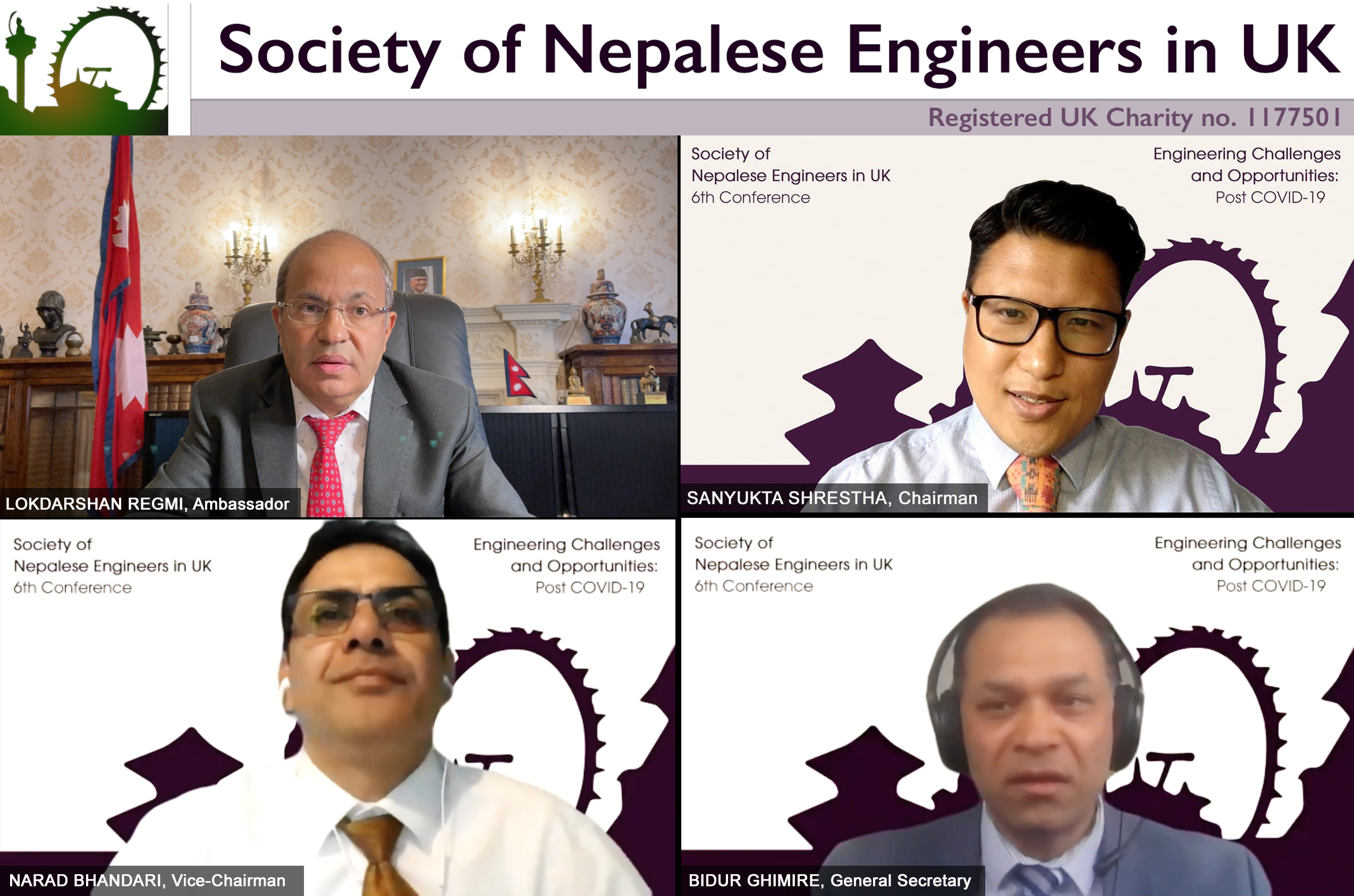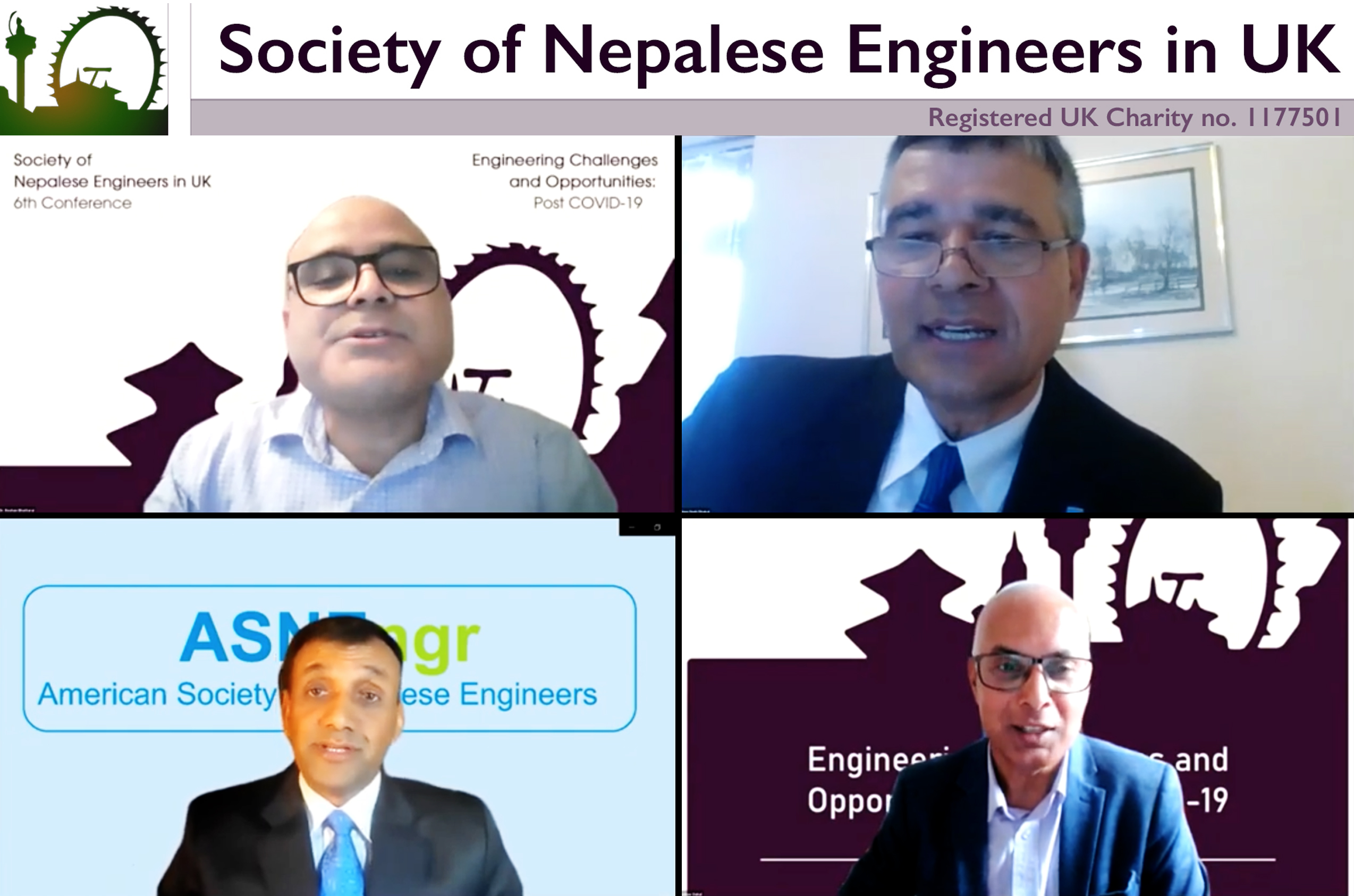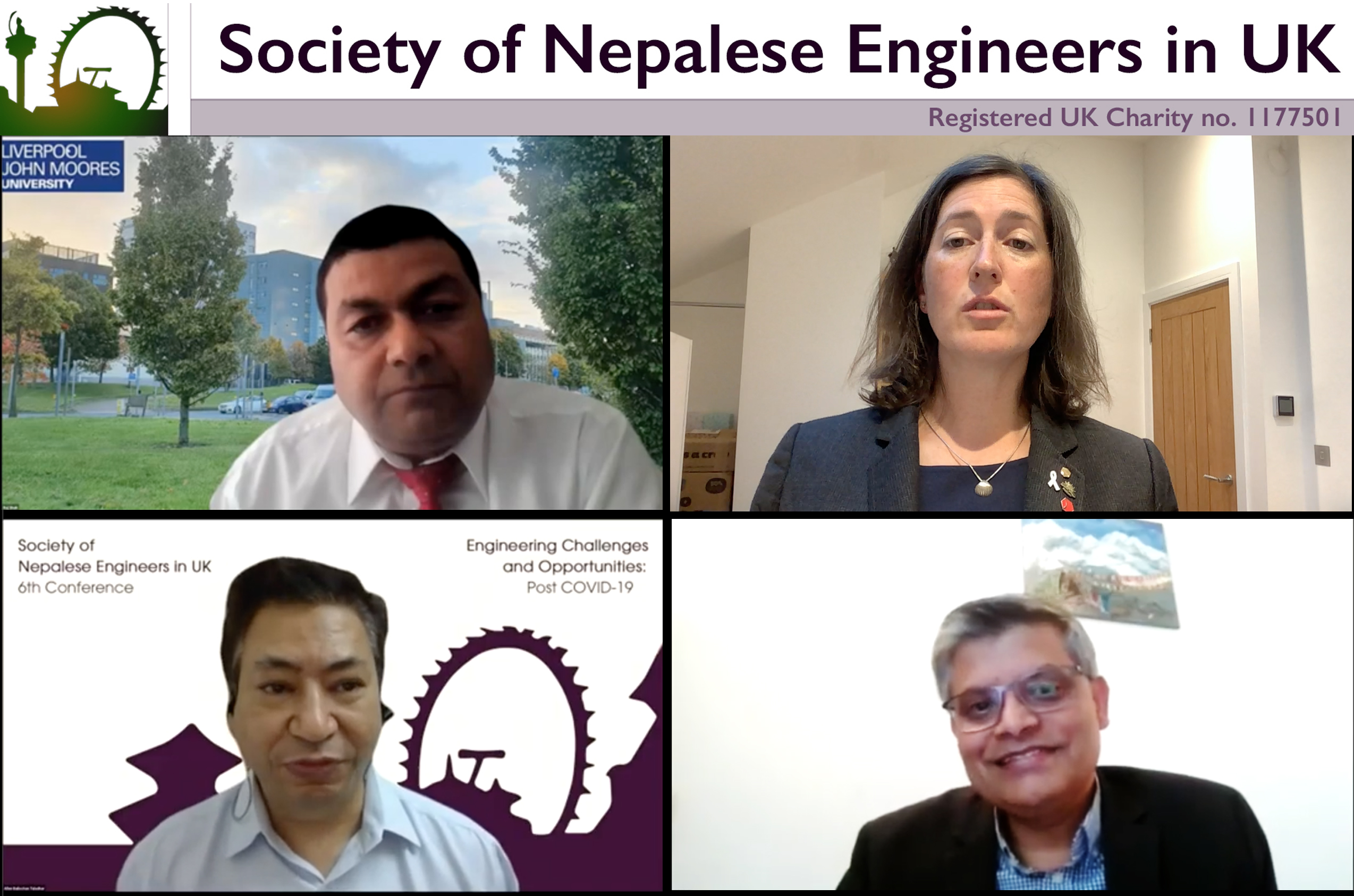London, 10th July 2021
The Society of Nepalese Engineers in UK (SONEUK) organised 6th SONEUK Conference on “Engineering Challenges and Opportunities: Post COVID-19” on Saturday, 10th July 2021, virtually on ZOOM. The conference was inaugurated by His Excellency Nepalese Ambassador to the UK Mr Lokdarshan Regmi with his warm wishes. The conference was attended by more than 70 Nepalese engineers living in the UK and abroad (Nepal, USA, France, and Uzbekistan), and a few non-Nepali engineers and representatives from engineering professional bodies, including Institution of Civil Engineers (ICE) UK, and Engineers Australia (EA) UK Chapter.
The inaugural session was conducted by the General Secretary of SONEUK, Dr Bidur Ghimire. In the program, conference proceedings book was also unveiled by HE Ambassador Mr Lok Darshan Regmi. The publication contains eight technical papers, most of which are focussed on impact of the Coronavirus pandemic in engineering, construction, sustainable development, and workplace environment. In his inaugural speech, HE Ambassador of Nepal expressed his confidence that the conferences like this will play an effective role in the delivery of ‘Prosperous Nepal, Happy Nepali’ and committed to cooperate in such events at embassy when situation eases in future. Giving her best wishes Ms Poonam Gurung, President of NRNA, UK praised recent SONEUK’s contribution and valuable support in fighting against COVID 19 in Nepal and she also pointed out NRNA UK’s desire to work collaboratively with SONEUK in coming days. Special guest Ms Nicola Telcik, President of EA UK Chapter congratulated SONEUK in organising such a timely themed conference and indicated her willingness to collaborate with SONEUK. President of American Society of Nepalese Engineers (ASNEngr), Mr Thakur Dhakal wished for the success of the conference and mentioned to work with SONEUK in similar and professional activities in coming years.
Introducing the conference theme and outlining the technical sessions, Vice Chairperson of SONEUK and Coordinator of the Conference Committee Mr Narad Bhandari highlighted that this year’s conference was focused on COVID-19 pandemic, and also is the continuation of past SONEUK conferences organised annually to promote professional engineering development by exchanging ideas and sharing experiences from professional engineers and academics around the globe. He further emphasised how engineers from around the world acted quickly and decisively in the face of a sudden increase in the demand of PPE, ventilators, oxygen concentrators and other high-tech solutions, as well as served an integral role in building new hospitals or expanding the capacities of existing hospitals where necessary in fighting against this invisible enemy – Coronavirus. Mr Bhandari expressed his gratitude to all the authors and presenters for their valuable contributions to this conference.
The technical session of the conference was divided into two, conducted by conference coordinator Mr Narad Bhandari and facilitated by SONEUK General Secretary Dr Bidur Ghimire and Secretary Dr Roshan Bhattarai. The technical session 1 was chaired by Prof Keshav Dahal from the University of the West of Scotland, whereas technical session 2 by Professor Hom Nath Dhakal from the University of Portsmouth. In the technical sessions, 8 technical papers, 3 keynote and 3 guest
speeches were presented by the presenters in their chosen topics. Professor Vishnu Pandey, from Institute of Engineering, TU, Mr Allen Tuladhar, The Secured ID and Mr Pawan Karki, a Senior Transport Specialist were the keynote speakers during the sessions.
In his closing remarks, the Chairperson of SONEUK Mr Sanyukta Shrestha thanked Chief guest, guests, SONEUK committee members, conference committee, sponsors, media representatives and general members and participants for making the conference successful. He further emphasised that engineering support for Nepal is not just our objective but also one of the necessities for Nepal, which defines the relevance of our overall existence.




